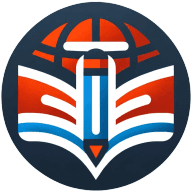3 Alternative Assessment Methods that Provide Meaningful Insight into Student Growth
Traditional testing methods often fall short in capturing the full spectrum of student abilities. This article explores alternative assessment strategies that provide a more comprehensive view of student growth and development. Drawing on insights from education experts, these methods offer innovative ways to track progress, reveal thinking processes, and showcase real-world skills.
- Project-Based Portfolios Track Holistic Growth
- Formative Assessments Reveal Thinking Processes
- Language Videos Showcase Real-World Skills
Project-Based Portfolios Track Holistic Growth
At Legacy, we believe that student growth cannot be determined by standardized testing alone. One method that has stood out for us has been project-based portfolios and skill trackers. When students work on long-term projects and reflect on their process, and teachers use soft skill trackers that measure things like problem-solving, communication, and teamwork, we have a far more complete picture of where a child is growing and where they need help.
For a higher-level example, in our middle school program, students conducted virtual labs or multi-week STEM design projects. For all projects, alongside the main work, we have checkpoints such as peer feedback, instructor check-ins, self-reflection, and a tracker of their growth in skills like critical thinking and collaboration. This way, we are able to see changes and improvements that standardized tests cannot measure: confidence in verbally explaining their process, ability to revise their work, creativity, and persistence.
Given this approach, teaching has changed. We can teach to a student's level, instead of just teaching to a test. This means that teaching becomes more of a process of mentoring students through their learning journey, and teammates (teachers) can spend more time coaching and mentoring students and less time focusing only on their performance on standardized tests. Parents have told us they realize their kids are more curious, willing to try new things, and less stressed.
If I had to sum it up, assessments that let students show how they think, struggle, adapt, and grow are far more meaningful than those that only test what they remember. And when you build your culture around that, everything else—motivation, learning, innovation—follows.

Formative Assessments Reveal Thinking Processes
One approach we have found especially meaningful is using formative assessments that track progress over time rather than relying solely on standardized testing in math and science. While standardized tests can show whether a student meets a benchmark, they often miss the details of how a student thinks through a problem. Our tutors use practice quizzes, step-by-step problem breakdowns, and short written reflections to see not just the final answer but the reasoning behind it. This gives us a much clearer picture of where students are struggling and what strategies are working.
This type of assessment has changed the way we teach because it allows us to adjust lessons week by week rather than waiting for a big exam to highlight gaps. It also helps students recognize their own growth in problem-solving and critical thinking, which builds confidence beyond what a score alone can measure. Over time, we have seen students become more engaged and independent in their learning, especially in math and science where the process is just as important as the result.

Language Videos Showcase Real-World Skills
Instead of using tests, I ask students to create short videos or podcasts in Spanish. These real-world tasks demonstrate their ability to use the language naturally—something multiple-choice tests cannot measure. This approach has changed how I teach: I now focus more on speaking fluently, expressing ideas, and building confidence. Students feel a greater sense of ownership over their learning, and I get a much clearer picture of their true progress.


